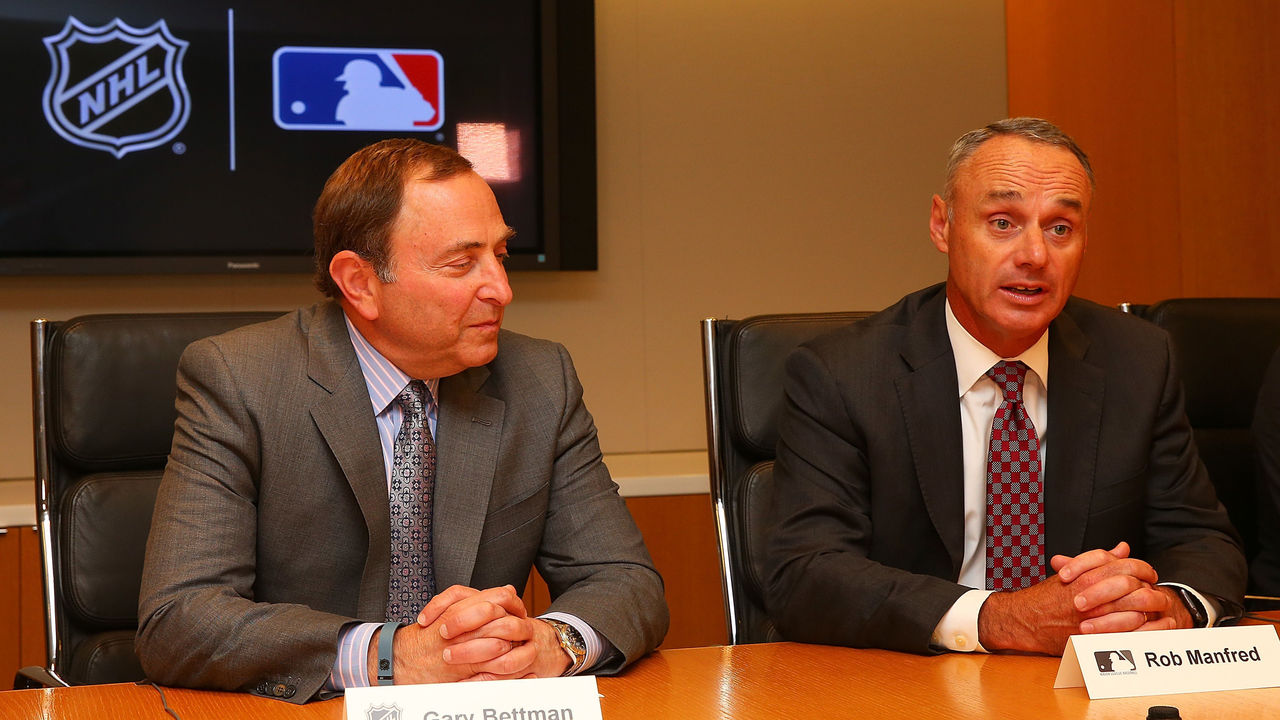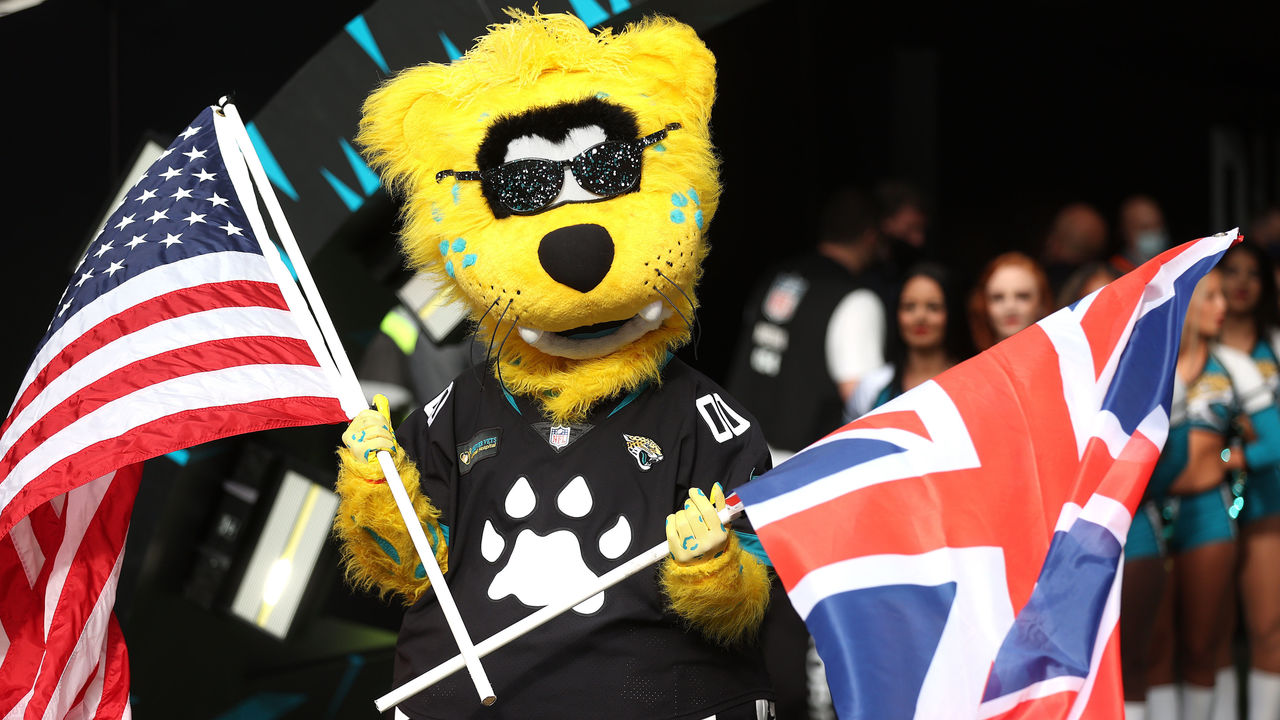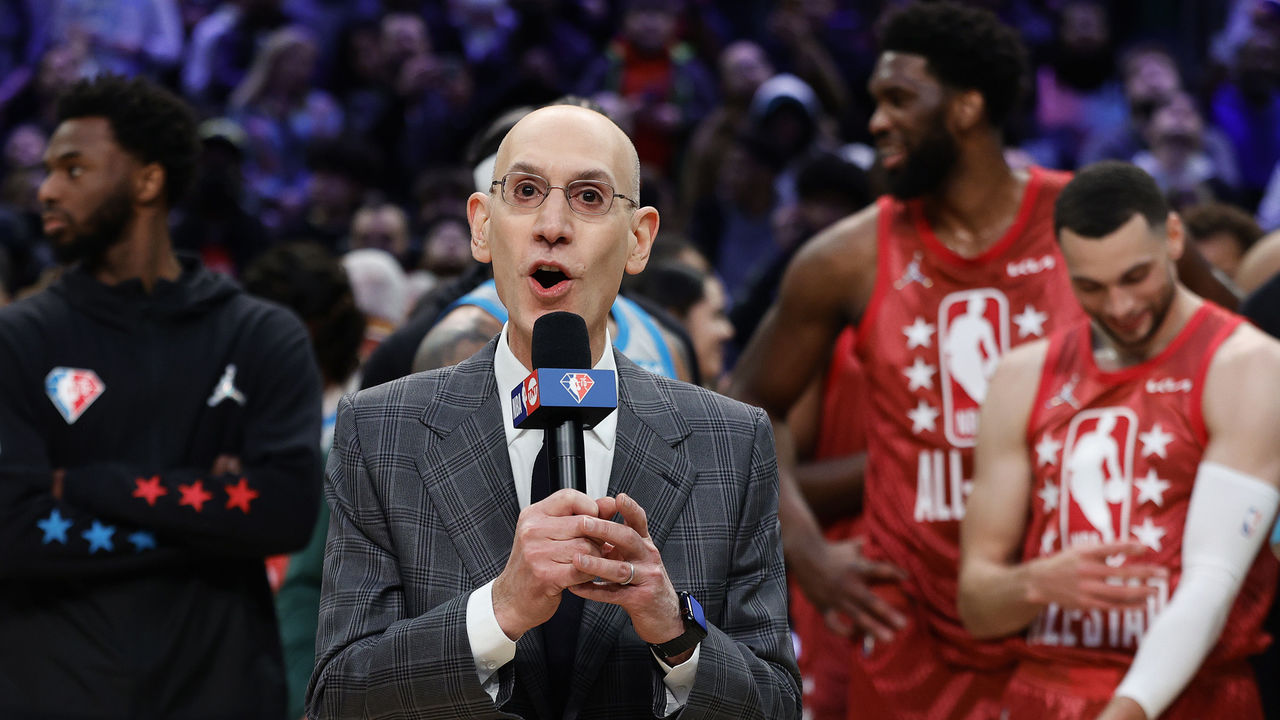In the back half of 2020, as leagues adapted to the pandemic, they shortened their regular seasons and took radical steps to slash travel. NHL teams started meeting consecutive times in the same city. Baseball's AL East squads only faced divisional opponents and the NL East. The NFL canceled its international games, including four in London.
The point was to minimize player exposure to COVID-19, but Seth Wynes detected a different benefit; sports' cutback on chartered flights was good for the environment.
Wynes, a geographer at Concordia University in Montreal, researches climate change mitigation. In a recent study, he found MLB, NBA, NFL, and NHL teams combined to fly 7.5 million kilometers in 2018, emitting close to 122,000 tonnes of carbon dioxide over the course of a normal sports year.

The 2020 experience was abnormal and revealing. If the Big Four leagues restored the scheduling changes that they introduced on health and safety grounds, Wynes estimates they'd reduce their carbon footprint by 22% - no trivial amount as the world warms and climate disasters threaten to get more extreme.
"Most fans probably wouldn't want to see the MLB 2020 season repeated, where you only got to play teams that are close by," Wynes said. "But if you think about a league during a normal season, they make a lot of trips to (distant) regions that maybe you could do without."
Wynes spoke to theScore about the climate crisis, the opportunity leagues have to help combat it, the upside of an NBA midseason tournament, and the reasons why less flying would benefit players, too. The conversation has been edited for length and clarity.
theScore: What effect do carbon dioxide emissions from flights have on the environment?
Wynes: Aviation is really important for climate change because each flight makes a lot of emissions. That pollution is released high in the atmosphere. It causes more warming than pollution that is released at ground level. It's also really hard to find alternatives. We have great ideas for electric vehicles and things like that to cut pollution, but not so much for air travel. When we're talking about climate, it's a hard area to tackle.
You researched air travel in the NFL, NBA, NHL, and Major League Baseball. How much carbon dioxide does each league emit in a normal season by flying to games?
The NBA releases the most. The NHL is close behind. Hockey and basketball, they play a lot of games. Baseball also plays a lot of games, but (scheduling series) makes for a lot less traveling. The NFL has fewer emissions because the season is so short.

When did you realize that 2020 scheduling changes might affect the environment?
This was something that I'd been thinking of before the pandemic: What could leagues do to reduce their climate impact? Scheduling is one idea. Climate people think about this sort of thing, so ideas come up. What would happen if the NBA got rid of conferences for the playoffs? There are some good competitive reasons to do that, but if you're a climate person, you start thinking: Oh, that would mean a lot more travel, wouldn't it?
But that's a really minor thing. Then the pandemic comes up and all of these leagues take some strong steps to reduce travel because they're trying to keep their players (and team personnel) from getting infected. As a climate person, that makes you think: I wonder what effect that would have on their carbon footprint every year.
Baseball and hockey regionalized their schedules. In 2020, MLB teams only faced opponents in their division and the corresponding interleague division: the AL East and NL East, for example. The NHL split into four regions for division-only play. What was the climate effect?
MLB went pretty hard on that regionalization. Their emissions went down by about 20% because of that. Other leagues did a little bit less, so that number wouldn't be quite as high. It's an interesting step because it's maybe not quite as sustainable in a normal season. But if you at least do a small amount of it, it's kind of a no-brainer.
MLB is broken down into the National League and the American League, and they're not grouped by region. You could have teams play more games against teams that are close by. You could keep the National League and the American League but improve that efficiency a little bit and cut down on emissions without anyone noticing all that much.

The NHL also took after baseball by staging consecutive matchups in one city a lot more often. One reason not to do this might be to maintain variety in the schedule so that fans get to watch a new opponent each night. That said, do you think the NHL and NBA should schedule more of these miniseries?
I think there's a pretty strong argument to be made for that policy especially. You're saving a lot of travel. When you look at regionalization, that's just making trips shorter. Here, you're cutting trips altogether.
That's more carbon that you're saving, but it also means more rest for your players - fewer trips, fewer red-eye flights, fewer time-zone changes. That would have a bigger impact in terms of player health and performance. When players lose sleep, they don't play as well. They're more likely to get injured. If you do those miniseries, you're cutting back on that. I think that's something that should be investigated a lot more fully.
A lot of players might not have enjoyed (the 2020) experience because they were also stuck in hotel rooms. They're quarantining when they're doing those miniseries, and so that's kind of miserable.
But imagine doing it in 2023. You're not as worried about COVID, hopefully, at that point. Suddenly these players are like: Oh, I have an extended stay in Los Angeles. I can rest up. We can practice between games. I can go out. Maybe enjoy myself rather than: OK, I'm going to be in L.A. and then, the next day, I'm hopping on a flight to Utah, and the night after that I'm over to New York. That's exhausting.
There are financial and marketing arguments to be made for leagues playing international games. The NFL visits London every year, except for 2020, to grow its fan base there. What's the climate argument for abandoning overseas games?
I estimated that the NFL could cut emissions in their season by 8% if it eliminated international games. It's pretty big for a change that fans at home wouldn't really care about. You're trying to make those fans happy, and I don't think those fans would be too harmed by eliminating a game overseas.
There are financial reasons not to do it, and so maybe the leagues won't do it. But I think there's a good argument to be made that the climate emergency is really important. Professional sports leagues act as role models in society. Taking a stand like that would be a visible signal that they actually care.

On that note: You acknowledged in your study that Big Four sports travel accounts for less than 1% of private flight emissions and that private flight emissions account for a fraction of the global total. If these leagues cut back on flights, what's the value of that? What could that change in the grand scheme?
The importance there is largely in leading by example; setting an example in the business community; setting an example for your millions of fans. I also think that what elite members of society choose to do really matters. When we're thinking about the climate crisis and trying to solve it, it requires this rapid, large-scale societal change.
If we're going to make that big change, it's hard to imagine us doing that successfully while the wealthiest people, while the most popular and well-known people in our society, continue to act as if there's no problem. Attending international games, flying on these large, luxurious planes, that's acting as if nothing is abnormal. Whereas saying, "OK, we're going to make these big changes," that's something useful.
There's one other, smaller point I would make. There are these alternative, sustainable aviation fuels, and they're pretty expensive. A lot of businesses couldn't afford to upgrade to these fuels or pay for these credits. But we need the sector of aviation to switch over to that. A strong hope for the future is that we develop these fuels, but they're so expensive to try out.
Leagues have a lot of money. If they were really concerned about money, they would already have implemented some of these (travel cutback) policies. It's clear that they have a little bit of extra cash that they could put toward a good cause.
And so when you're saying: League emissions are only a tiny fraction of global emissions, or even aviation emissions, why do they matter? They could be part of catalyzing a bigger change by purchasing credits for these cutting-edge technologies and helping to jump-start that field. That would be another area where the leagues could have an outsize impact.

You brought up how players could benefit from playing more baseball-style series. If you're advocating for climate solutions and trying to get organizations to act with urgency, what's the importance of presenting win-win solutions - ideas that can benefit everyone involved?
Generally, it's a pretty big deal. Outside of the NBA, maybe you're talking to policy-makers about coal power plants. It's important to present the information that shutting down coal power plants would be really good for the health of people in your state or province. We're talking about less cancer, less asthma, less hospital visits.
Sometimes talking about those co-benefits can be more persuasive than talking about climate. It depends on your audience. If I was bringing this to a players' union and trying to get them on board, I'd be focusing on the data for: Look, these are the injuries that are hampering your players. You should think about backing (these scheduling changes) when you get into negotiations with the league; maybe negotiations about how long the season will be.
Going off that, the NBA has considered shortening its regular season by four games, from 82 to 78, and introducing a centralized midseason tournament. From a climate perspective, what do you think of that idea?
It's a great idea. The one thing you do have to be careful about: If you only cut a few games from the entire season, and then introduce a midseason tournament and decide to put it in Seattle, that's on the coast. It's way out of the way. You might have a backfire effect where you increase the amount of emissions. It's a little bit safer if you cut 10 games from the season, rather than, let's say, four. These policies can be tricky, and you have to think them through.

Last month, a United Nations expert panel warned that the climate crisis is intensifying. The New York Times summed up its report like this: Time's running out to avoid "a harrowing future in which floods, fires and famine displace millions, species disappear, and the planet is irreversibly damaged." The panel called on countries to act soon to reduce emissions. Are there actions we haven't covered yet that the sports world could take?
If you look outside of the four major leagues, if you want to look at climate change as being an all-hands-on-deck situation, absolutely.
Every time a tournament is scheduled, you can think about: Where are we placing this tournament so that people have to fly as little as possible to get there? Beyond aviation, you can say: We have fans coming from all over the place (to attend home games). Can we talk to people at the city and find a way to incentivize our fans taking public transit? Or maybe the best (spots) in our parking lot are all EV chargers, and you need to drive an electric vehicle to use them.
There are also ways you can communicate about climate change. You can be more vocal about it. Players, owners, and so on can take a stand, use their social media influence, and promote climate action. You see that a little bit more in Europe. There are some (soccer) teams that are intentional about taking trains instead of flights to games. Winter sports have been strong advocates because they're going to be the first affected. Downhill skiing: It's much harder to imagine a future for that sport in a warming climate.
But I would also say for the leagues we're talking about, climate change has already started to impact them. You have games that officials are considering whether to cancel because of wildfire smoke. LeBron James had to evacuate his home (in 2019) because of a wildfire.
We know these wildfires are supercharged by climate change. We're going to see more and more of that as the planet warms. It's going to become an unavoidable issue for sports.
Nick Faris is a features writer at theScore.
Copyright © 2022 Score Media Ventures Inc. All rights reserved. Certain content reproduced under license.